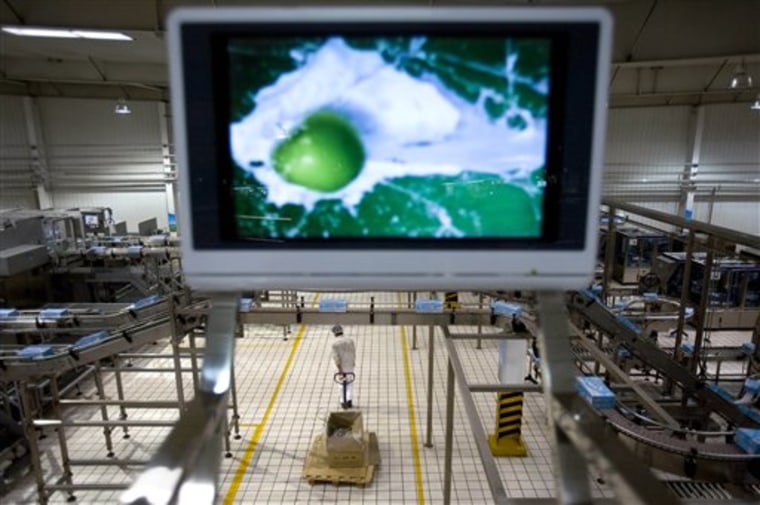Rumors on the Web that a major Chinese dairy company's baby formula might harm infants played on the worst fears of jittery parents after a string of scandals over tainted milk.
This week, China's biggest milk producer, Mengniu, announced that the rumors targeting rival dairy Yili in July were manufactured by a Mengniu manager in what it said was a bizarre plot to boost his sales.
Police say the manager has been arrested, along with three employees of a Beijing marketing firm accused of helping him whip up the scandal.
"We deeply apologize!" Mengniu said in a statement Friday.
Facing cut-throat competition, Chinese companies or their employees are willing to resort to such dirty tricks — and unscrupulous public relations agencies are ready to spread damaging rumors for a fee.
"There is a mentality in China that one of the ways you do PR is to get bad stories out there about your competitors," said Alistair Nicholas, chief executive of AC Capital Consulting in Beijing, which advises companies on their public image. "PR is played in a pretty dirty sort of way in this market sometimes."
Mengniu blamed a manager in its milk division, An Yong, saying he hoped to increase his sales bonuses by driving customers away from Yili, where he used to work. The monthlong campaign was elaborate and costly, but Mengniu said An acted without the knowledge of company executives.
Police say writers pretending to be pregnant women and others posted nearly 100 comments online to spread rumors that Yili formula contained fish oil that might cause premature sexual development, according to the state Xinhua News Agency. The campaign cost 280,000 yuan ($41,000) — some 14 times the average Chinese annual income — and drew 200,000 readers, Xinhua said.
The scare stirred unpleasant memories of the 2008 uproar over milk laced with the industrial chemical melamine that sickened hundreds of thousands of children and was blamed for killing six. A dairy farmer and a milk salesman were executed and 19 other people were jailed for their role in selling the tainted milk.
In a separate incident in August, parents said infant formula apparently caused premature breast development in at least three babies. The government said investigators found no extra sex hormones in the milk and the babies' development was within normal limits.
In a four-sentence statement announcing An's arrest, police said there currently was no "deeper background" but gave no indication whether Mengniu executives or other employees were under suspicion. It promised to "severely strike" at efforts to frighten consumers and harm companies but gave no details of what penalty An might face.
Three employees of a Beijing marketing firm, BossePR, were arrested and three Internet consultants were being questioned, said the statement by police in Hohhot, the city in China's northern grasslands where both dairies are headquartered.
Phone calls to Mengniu Dairy Group Co., Yili Industrial Group Co., BossePR and police were not answered.
The Web offers ordinary Chinese a rare chance to express themselves in a society where newspapers, TV and radio stations all are state-controlled. Millions of people use blogs and Web bulletin boards to exchange tips about travel, education, the best new mobile phones, child care and other topics.
That makes the Web a target for spreading rumors that hurt a commercial rival.
"There are companies that will do this for unbelievably low amounts of money, to go in and seed chatrooms with negative stories," said Nicholas. "Or if there's a negative story about you running, they go in and basically sabotage the websites that are carrying stories that are harmful to you."
Zhou Zucheng, a professor of corporate ethics at Shanghai Jiaotong University's Antai College of Economics and Management, said he was surprised to see such a high-profile company as Mengniu accused of trying to smear a rival.
Both dairies might wind up suffering, he said.
"The Mengniu and Yili incident might lead consumers to believe that those companies have not drawn enough lessons from the melamine scandal and that the industry is still not on a healthy track," Zhou said.
